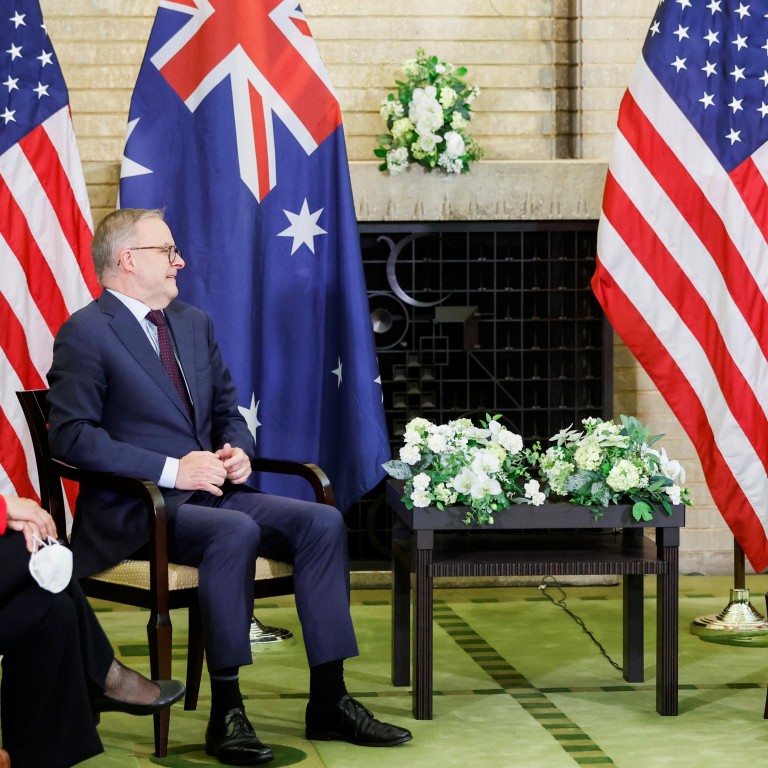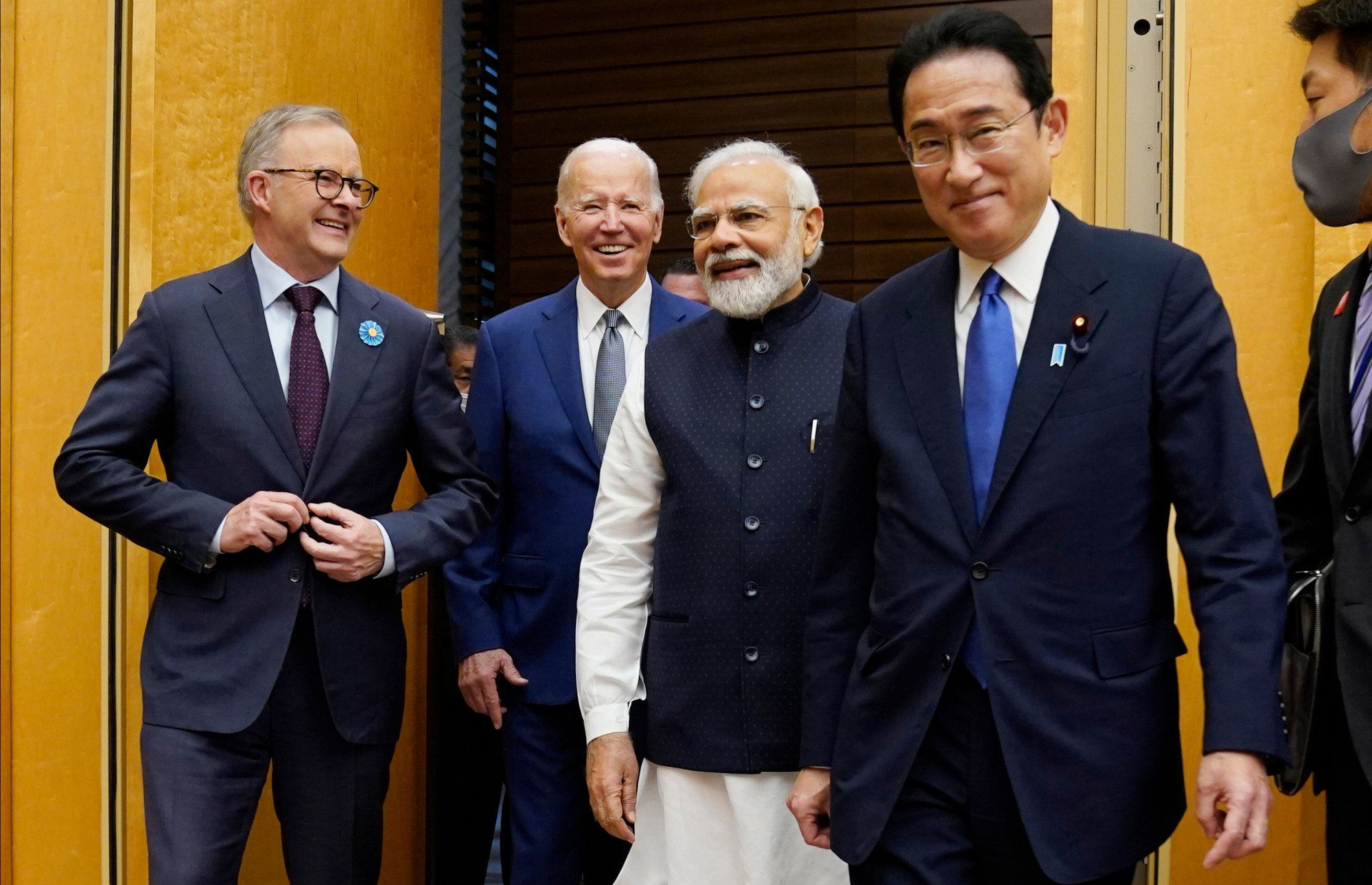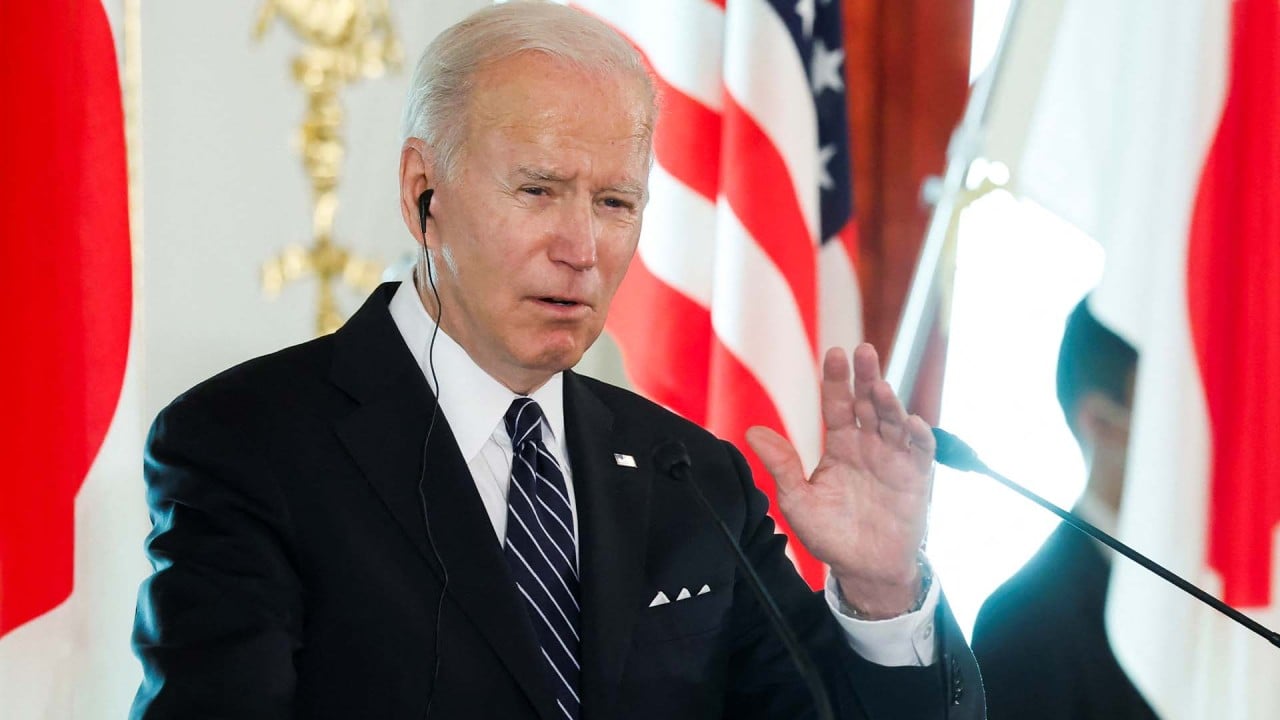
For loyal US ally Australia, defending Taiwan may well be a test too far
- Canberra has been unflinching in its support for US policy in the Indo-Pacific, but Biden’s vow to defend Taiwan militarily should have its ally worried
- If Australia wants to avoid following the US into a war, the new Labor government must find a way out of the dangerous anti-China rut left by the Liberal Party
They must lead the unofficial geopolitical loyalty league worldwide. For if there is one country and people in the Asia-Pacific that has logged more miles through mud, jungle and desert to follow the US military almost anywhere, Australia is the one.
Don’t the Aussies always answer the call? Korea, Vietnam, Afghanistan, Iraq. It started back in 1951 with a three-way security treaty (including New Zealand) that continues today, and where or when it will stop, nobody knows.
Certainly, follow-the-leader Australia has been a great catch for Washington. With such gold-standard allies, you might well feel better about your chances of shaping large parts of the world to your liking. That is precisely America’s desire, and as President Joe Biden has said over and again, you won’t get very far without allies.
Australia’s recent national election might have raised the Washington-Canberra relationship to a higher level of electorate scrutiny, especially with China now banging at economic doors and raising geopolitical challenges of the largest kind.
Coming down on Huawei, rehashing Beijing’s human rights practices and policies, exposing Chinese foreign investments and dual-exposure research collaborations, passing “foreign interference” laws – they did not want for bipartisan support.

But, at some point, the China part of the deal may become too heavy a lift for even the most loyal Australians, if the package has to include Biden’s loud pledge to defend Taiwan against military action by Beijing.
American analysts have, in many instances, tried to explain away the apparent new Biden hardness as little more than an emotional politician trying to say and do the right thing for democracy. But this does not alleviate the anxiety of policy critics in Australia that see the matter as a dangerous escalation and a bad deal for their country.
If America and China went to war, Australia would be expected to join the US. Suddenly, the costs of remaining a loyal ally would skyrocket unpredictably.
What is more, Australian critics take the view that even the US, with so many military-political commitments globally, cannot afford to risk all-out war with China and even if it did, would not win one right in the middle of Beijing’s home theatre.
The US military remains the world’s best, but it cannot be locked and loaded and ready to bounce into action everywhere it is currently camped; and therefore it should be honest with itself, with Taiwan and with its allies, that a non-nuclear military response alone probably cannot save Taiwan.
But a nuclear response might destroy everyone involved, including Taiwan and parts of Australia. Analysts worry especially about the massive Pine Gap joint defence and intelligence complex in the country’s Northern Territory facilities – an obvious target if ever there was one.
One would like to offer America’s friends in the Asia-Pacific a future scenario that’s far more sensible.
The Australians may be loyal but they are not dumb. Their think tanks and universities are as good as America’s and they get the conceptual hitch (see especially “The Taiwan Choice: Showdown in Asia”, in Australian Foreign Affairs in February). They know the US will try to calm them down.
So you have to wonder whether the Australians will be played again by the Americans: fight on with us or lose everything; certainly not better red than dead?
Australia’s new PM has chance to mend fences with China: analysts
Taiwan is an extremely successful island which has almost everything a true country needs, except the international-law recognition of the United Nations. This is key. The UN recognises 193 countries as member states around the globe and Taiwan is not one.
But the Aukus security partnership with the US implies Australia would be part of a military defence effort. Is that how Australians want their security future handled?
In a 2021 Lowy Institute Poll, 57 per cent of respondents indicated a preference for neutrality in the event of US-China military conflict. Asian countries want to work with Washington but the sky cannot be the limit. Insisting on a hawkish line with China will not rally allies in Asia but dispirit them – perhaps divide them.
The outgoing Liberal Party was completely stuck in the American mud on Taiwan. It is now the job of the country’s Labor Party to get the country out of this dangerous rut.
Tom Plate is founder of Asia Media International. He is distinguished scholar of Asian and Pacific Studies at LMU, and vice-president of the Pacific Century Institute


